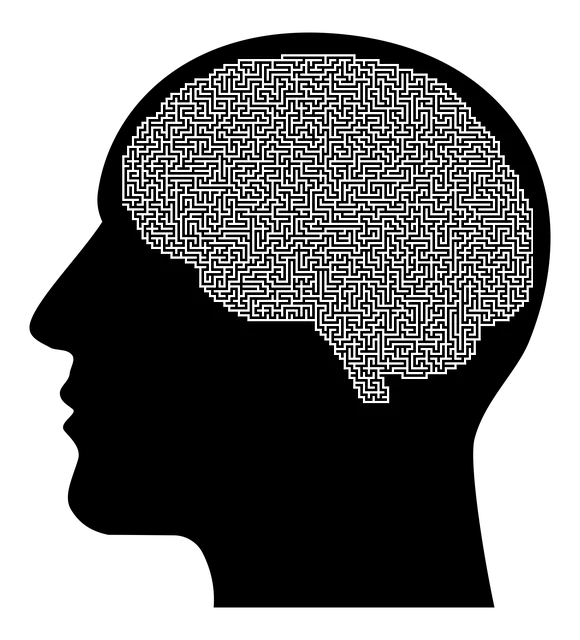Littleton Kaiser Permanente Psychiatry provides comprehensive, holistic mental health care through expert assessments, personalized treatment plans, and community support. Their tailored approach integrates cognitive-behavioral therapy, mindfulness practices, medication management, and self-care strategies like stress reduction and setting boundaries to empower individuals in their recovery journey.
Navigating mental illness is a challenging journey, but understanding the process can empower individuals towards recovery. This article offers comprehensive guidance on diagnosing and treating mental health conditions at Littleton Kaiser Permanente Psychiatry. We’ll walk you through what to expect during evaluations, provide a step-by-step treatment guide, explore therapy and medication options tailored to individual needs, suggest building community support networks, and share self-care strategies for a holistic approach to healing. Let’s embark on taking control of your mental well-being with the expert assistance of Littleton Kaiser Permanente psychiatry.
- Understanding Mental Illness Diagnoses: What to Expect at Littleton Kaiser Permanente Psychiatry
- Navigating the Treatment Process: Step-by-Step Guide for Patients
- Therapy and Medication Options: Finding the Right Fit for Your Journey
- Building a Supportive Network: Connecting with Resources in Your Community
- Self-Care Strategies for Recovery: Empowering Yourself Throughout Treatment
Understanding Mental Illness Diagnoses: What to Expect at Littleton Kaiser Permanente Psychiatry

When facing a mental illness diagnosis, many individuals find themselves navigating uncharted territories. At Littleton Kaiser Permanente Psychiatry, we prioritize patient education and support to ensure a smoother journey. Our expert team offers comprehensive assessments and detailed explanations about various mental health conditions. This includes demystifying diagnostic criteria, symptoms, and available treatment options tailored to individual needs.
Litleton Kaiser Permanente’s approach goes beyond diagnosis. We also emphasize the importance of understanding one’s unique circumstances, including cultural background and personal stressors. This holistic view is integral to effective treatment planning. Additionally, our Stress Management Workshops Organization provides valuable resources for stress-related issues, highlighting a commitment to Mental Health Policy Analysis and Advocacy within our practice.
Navigating the Treatment Process: Step-by-Step Guide for Patients

Navigating the mental health treatment process can be a challenging and often daunting task for patients. At Littleton Kaiser Permanente psychiatry, we understand the importance of clear guidance during this critical period. Here’s a step-by-step guide designed to empower individuals seeking care:
1. Assess Your Needs: Begin by evaluating your symptoms, their impact on daily life, and any previous treatment attempts. This self-awareness is crucial for an accurate diagnosis and tailoring effective strategies. Incorporate Self-Awareness Exercises to better comprehend your emotional landscape.
2. Research and Consult: Explore reputable sources for information about specific mental health conditions. Engage in open conversations with your primary care provider or psychiatrist, sharing concerns and asking questions. Don’t hesitate to discuss potential treatment options, including therapy modalities and medication management.
3. Create a Treatment Plan: Collaboratively work with your healthcare team to develop a comprehensive plan aligned with your unique needs. This involves setting realistic goals and establishing a timeline for interventions like psychotherapy, medication adjustments, or specialized treatments.
4. Implement and Monitor: Adhere to the agreed-upon treatment protocols while regularly assessing progress. Keep open lines of communication with your psychiatrist and therapists. Regularly review and update your plan based on its effectiveness, incorporating new strategies as needed.
5. Risk Management Planning: As part of this process, consider implementing Risk Management Planning for Mental Health Professionals. This involves identifying potential risks and developing safety nets to mitigate them. It includes understanding conflict resolution techniques, which are invaluable for navigating challenges during treatment.
Therapy and Medication Options: Finding the Right Fit for Your Journey

Navigating therapy and medication options is a crucial step in your mental health journey. At Littleton Kaiser Permanente psychiatry, our comprehensive approach ensures patients have access to diverse treatment modalities tailored to their unique needs. We offer a range of therapeutic interventions, from cognitive-behavioral therapy (CBT) to mindfulness practices, aimed at empowering individuals to manage their symptoms and foster inner strength development.
Our specialists work closely with patients to identify the most effective strategies for healing. This may involve medication management, where our psychiatrists carefully prescribe and monitor treatments, ensuring optimal results while minimizing side effects. Additionally, we facilitate community outreach program implementation, promoting mental health awareness and providing support networks that encourage continued recovery. Through these comprehensive options, Littleton Kaiser Permanente psychiatry guides individuals toward a brighter, healthier future.
Building a Supportive Network: Connecting with Resources in Your Community

Building a supportive network is an integral part of navigating mental illness diagnosis and treatment. Connecting with resources in your community, like those offered by Littleton Kaiser Permanente psychiatry services, can provide a solid foundation for recovery. Local support groups, therapy centers, and community organizations dedicated to emotional well-being promotion techniques offer valuable assistance. Engaging with these resources not only provides access to specialized care but also fosters a sense of belonging and understanding.
Trauma support services, often available through community health centers, are particularly crucial for those dealing with past traumas or complex mental health conditions. Self-awareness exercises, encouraged by many professionals, can help individuals better understand their emotional responses and triggers. By leveraging these local resources, individuals can create a comprehensive care plan that addresses not just symptoms but also promotes overall emotional well-being.
Self-Care Strategies for Recovery: Empowering Yourself Throughout Treatment

Recovery from mental illness is a journey that requires self-care and resilience. At Littleton Kaiser Permanente psychiatry, we understand that empowering ourselves through various strategies is vital for navigating treatment effectively. One key aspect is adopting healthy habits to prevent burnout, which can be a common obstacle during the healing process. Burnout prevention involves setting boundaries, prioritizing rest, and engaging in activities that recharge your energy, such as exercise or spending time in nature.
In addition, building resilience is an essential part of self-care. This means cultivating coping mechanisms to manage stress and develop a positive mindset. Simple yet effective stress reduction methods like mindfulness meditation, deep breathing exercises, or journaling can help individuals gain control over their mental well-being. By incorporating these strategies into daily routines, you can enhance your overall recovery and foster a sense of empowerment throughout the treatment process.
Navigating mental illness is a personal journey, and at Littleton Kaiser Permanente psychiatry, we aim to provide comprehensive support. Through understanding diagnoses, exploring treatment options, building a supportive network, and adopting self-care strategies, individuals can take control of their mental health. Our step-by-step guide ensures patients feel empowered every step of the way, offering tailored therapy and medication options to foster recovery. Remember, seeking assistance is a sign of strength, and with the right resources, healing and growth are achievable.



